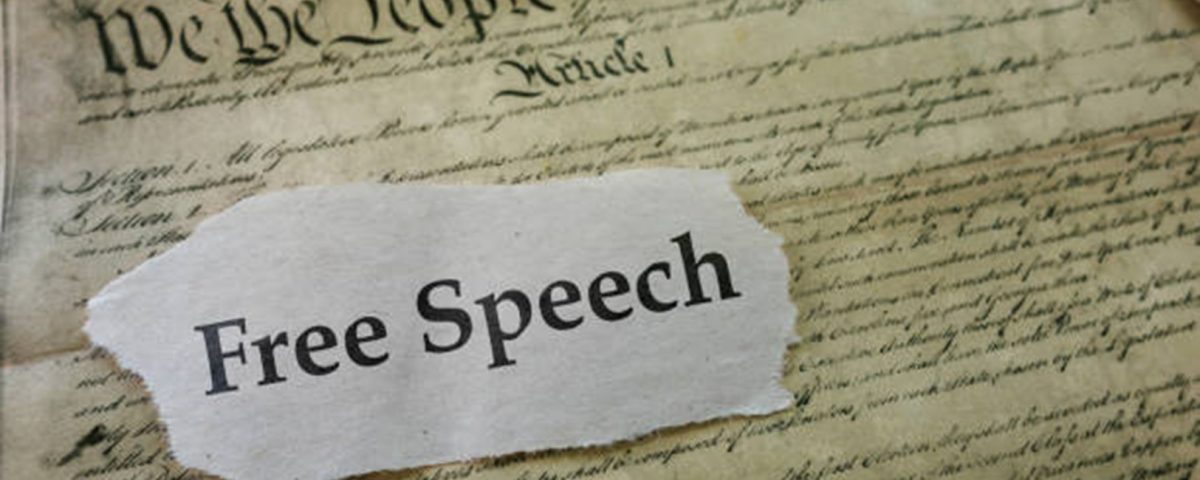- Hyderally & Associates P.C | Employment Lawyers NJ, NY
- (973) 509-8500
- tyh@employmentlit.com
Workers Win Fight for Free Speech in the Work Place!

New Jersey and New York Propose Bills to Prevent AI Discrimination in Hiring!
May 13, 2024
New Protections for Freelancers in New York State: The Freelance Is Not Free Act
May 31, 2024By: Ty Hyderally, Esq., Jennifer Vorih, Esq., and Maya Patel
Federal and New Jersey labor laws safeguard employees’ rights to participate in various joint endeavors aimed at enhancing conditions for workers, both within their workplace and in society overall. These protections apply to activities beyond those directly linked to union activities and negotiating, as highlighted by a February 2024 ruling from the National Labor Relations Board (NLRB). The NLRB recently affirmed that federal law protects workers expressing certain social justice messages within the workplace. In the case at hand, a Home Depot employee who interacts with customers inscribed “BLM” (Black Lives Matter) on their employer-provided apron. The employer viewed this as a violation of its dress code regulations. The NLRB determined that the employer’s directive for the employee to remove the marking constituted a breach of the law.
According to Section 7 of the National Labor Relations Act (NLRA), employees possess the freedom to participate in actions concerning self-organization and collective bargaining. Additionally, it grants them the right “to engage in other concerted activities for the purpose of…mutual aid or protection.” The concept of “concerted activities” extends beyond actions involving two or more employees. As per NLRB precedents, an individual employee may partake in protected concerted activities in various scenarios, such as, acting with the consent of other employees; presenting a collective grievance to management; or pursuing an activity that naturally follows from prior concerted actions.
Under Section 8 of the NLRA, employers engage in an unfair labor practice when they impede, restrict, or pressure employees who are endeavoring to exercise their rights under Section 7. Furthermore, it is against the law to terminate an employee or undertake other unfavorable measures against them for participating in protected activities.
In this case, the Home Depot employee, Antonio Morales, who was the subject of the recent NLRB case, started work at The Home Depot in August 2020. Throughout the ensuing months, he raised numerous grievances concerning racial bias and discrimination in the workplace perpetrated by supervisors and colleagues. At one point in time, A Black History Month display, that Mr. Morales contributed to, was repeatedly vandalized. Mr. Morales requested a storewide meeting on numerous instances to discuss the situation. However, management denied his request.
In the fall of 2020, after complaining to management numerous times about racism at work, Mr. Morales inscribed the acronym “BLM” on his work apron. A manager discussed the situation with Mr. Morales and stated that having BLM on his apron violated the dress code and demanded that Mr. Morales remove it before returning to work. Two managers informed Mr. Morales that allowing Mr. Morales to retain the “BLM” initials would necessitate permitting other employees to wear swastikas. Mr. Morales refused to remove BLM from the apron and resigned shortly thereafter.
The NLRB determined that The Home Depot’s actions violated the NLRA and further ruled that Mr. Morales was constructively discharged. The NLRB concluded that the BLM marking on the apron stemmed logically from the efforts of Morales and other employees to highlight racial bias and discrimination within the store. According to the NLRB, the employee’s decision not to remove the marking was intended for the sake of mutual support and protection. The NLRB dismissed The Home Depot’s assertion that “special circumstances” justified the demand for removal due to the marking’s “controversial” nature. “It is well-established that workers have the right to join together to improve their working conditions — including by protesting racial discrimination in the workplace,” said Chairman Lauren McFerran. “It is equally clear that an employee who acts individually to support a group protest regarding a workplace issue remains protected under the law.”
The NLRB’s ruling in this case affirms the rights of employees to engage in concerted activities for mutual aid or protection under the NLRA and underscores employees’ right to address issues of racial bias and discrimination in the workplace without facing retaliation from employers. This decision serves as a reminder to employers to respect employees’ right to express themselves on matters of social justice and to refrain from actions that could be perceived as attempts to suppress such expressions. The decision is a reminder of the importance of protecting employees’ rights to advocate for fair treatment and equality in the workplace.
For more information, please read the NLRB’s statement.
En nuestra firma hablamos español. This blog is for informational purposes only. It does not constitute legal advice, and may not reasonably be relied upon as such. If you face a legal issue, you should consult a qualified attorney for independent legal advice with regard to your particular set of facts. This blog may constitute attorney advertising. This blog is not intended to communicate with anyone in a state or other jurisdiction where such a blog may fail to comply with all laws and ethical rules of that state of jurisdiction.


